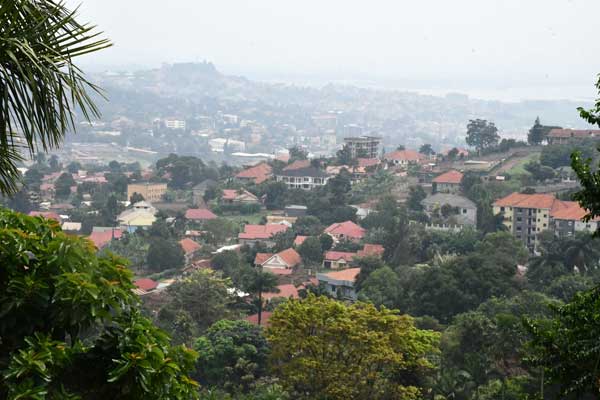Prime
Shs710b in rental tax uncollected annually

Uganda’s real estate sector has grown rapidly in the last 2o years. Photo | File
What you need to know:
- Speaking during the Tax Forum CEO Breakfast meeting in Kampala, Ms Connolly-LaBelle, said about 92 per cent of rental income is not taxed, which denies government close to Shs710b.
Only 8 per cent of rental tax is collected, which leaves the larger majority of rental income untax, according to Ms Jaye Connolly-LaBelle, the RippleNami chairperson and chief executive officer.
Speaking during the Tax Forum CEO Breakfast meeting in Kampala, Ms Connolly-LaBelle, said about 92 per cent of rental income is not taxed, which denies government close to Shs710b.
Ms Connolly-LaBelle, whose company signed a contract with government last year to develop technology through which collection of rental tax can be maximised, did not explain how she had arrived at the figure.
Government has in the last five years struggled to implement rental tax due to chronic lack of data about the sector.
However, a number of measures, among which include development of a digital data base under the Rental Tax Compliance System, are being worked on to reduce tax leakage. Uganda has in the last 20 years seen rapid growth in the real estate sector, which now contributes at least 13 per cent to the Gross Domestic Product.
Parliament recently amended the Income Tax Amendment Bill to introduce a levy that will require rental property owners to pay 25 per cent of income generated from such facilities.
Ms Connolly-LaBelle said the current rental income tax collection is too low to attract meaningful investment in real estate, noting there was need to create solutions that will level ground.
The Rental Tax Compliance System, among others, seeks trace properties to real owners and map properties to enable Uganda Revenue Authority to identify potential taxable units.
Ms Patronella Namubiru, a tax expert from Deloitte, said technology will ease tax collection as well as enabling URA penetrate the real estate sector, which has since the introduction of rental tax presented a number of challenges.
Speaking during a panel discussion, Ms Namubiru said there is under-declaration of rental income because of its segmented nature that exempts some.
URA has in the last five years been developing digital solutions that seek to deepen and widen tax collection.
A number of solutions including Rental Tax Compliance System, Digital Tax Stamps and Electronic Fiscal Receipting and Invoicing System, among others, have been developed in regard to widening and deepening tax collection.
Uganda Revenue Authority says they are looking forward to the solution to curb underpayment and evasion in a sector that if well educated about their Rental Income Tax obligations which takes effect from July 1st, it can only widen rather than deepen the tax burden currently being shouldered by just a handful of taxpayers.
Digital solutions
A number of solutions including Rental Tax Compliance System, Digital Tax Stamps and Electronic Fiscal Receipting and Invoicing System, among others, have been developed in regard to widening and deepening tax collection.
These are developed to curb under declaration and evasion of taxes in different sectors of the economy.





